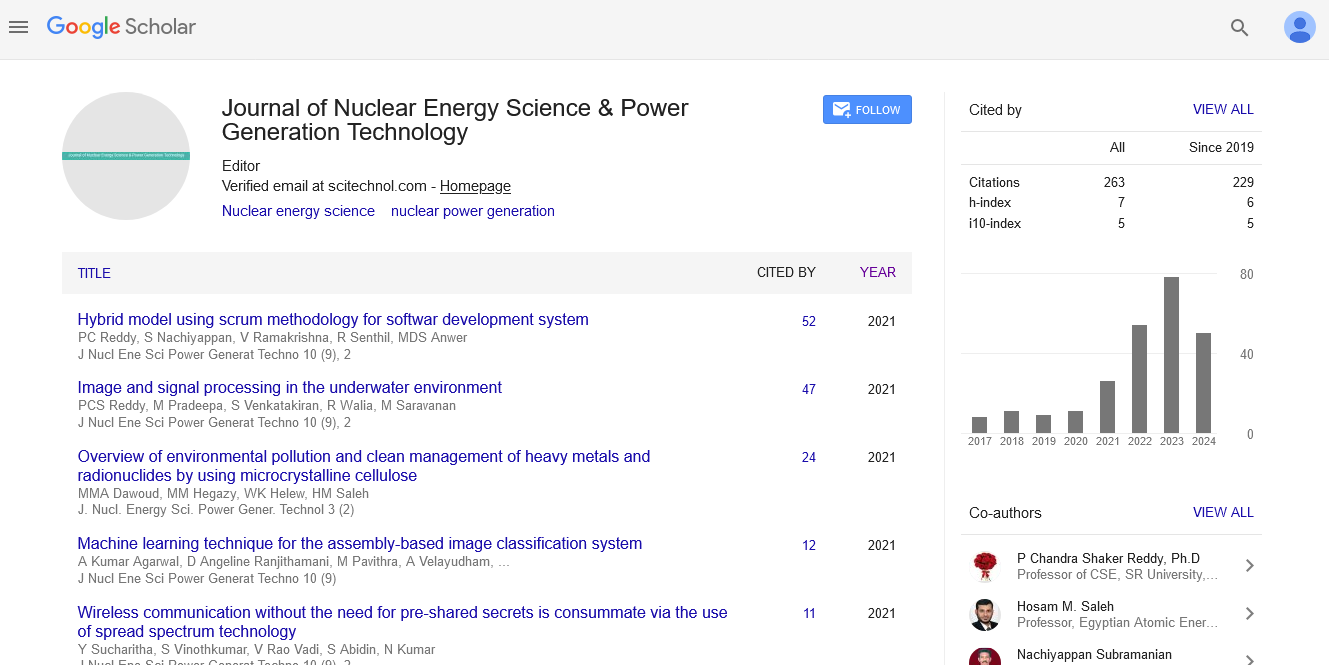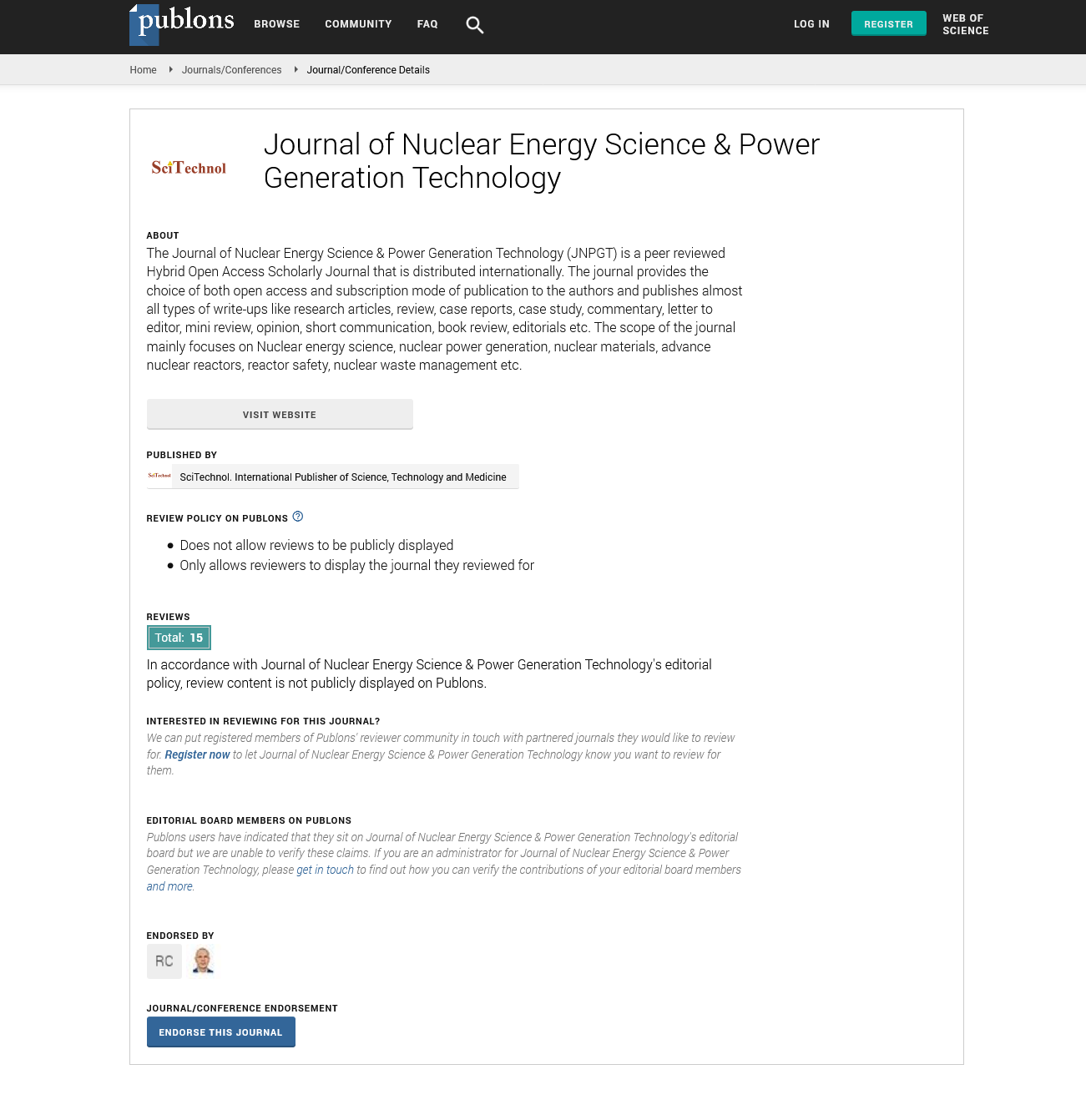Organic Rankine cycle - A negative-carbon approach in power generation from low-temperature waste heat
Tzu-Chen Hung
National Taipei University of Technology, Taiwan
: J Nucl Ene Sci Power Generat Technol
Abstract
Unlike conventional power conversion from fuel source, organic Rankine cycle (ORC) can efficiently convert wasted lowtemperature heat to power. That’s why it is said as a “negative carbon” approach in power generation. Moreover, with rising concerns in environment and global warming, ORC for waste heat recovery is expected commercially enormous. A special advantage of ORC is that it has wide spectrum in the selection of working fluid to fit optimal power generation. In general, near isentropic fluids are more favorable. Systematic studies have been worldwide implemented for the selection of appropriate working fluids with respect to the evaporation temperature, available temperature range, operational safety, and environment friendly, etc. All expander feature, heat exchanger behavior and pump performance significantly influence the cycle operation characteristic. Therefore, how to efficiently integrate ORC processes with various conditions of heat sources and sinks is a challenge for ORC commercialization. The stand-alone operation strategy can run steadily at random operation zone, whereas the gird connect operation strategy is suitable for greater heat input. ORC systems have been generally commercialized with the scale greater than 50 kWe. Nowadays, laboratory-scale ORCs have gradually obtained good cycle performance for the liquid heat source less than 120°C. Once small-scale ORC is commercialized, the applications would be more and more flexible. The economic analysis of the ORC systems is performed according to the module costing technique, in which various kinds of economic factors have been proposed, such as APR (heat exchanger area per unit power output), LEC (levelized energy cost), EPC (electricity production cost), etc. Electricity supply is a critical problem in developing or undeveloped territories. We expect that low-cost ORC could be employed in those areas to improve their living standard.
Biography
Tzu-Chen Hung received his PhD degree in Mechanical Engineering from UCLA, USA in 1989. From 1990 to 1992, he served as a Nuclear Engineer at Argonne National Laboratory. After 2008, he has been serving as a Professor and the Associate Dean of the College of Mechanical & Electrical Engineering at National Taipei University of Technology (NTUT) in Taiwan. He has been honored as a Distinguished Professor since 2016. He also served as the Chief Executive for the Committee of Recruitment for Technological Colleges and Universities, Ministry of Education, Taiwan for 5 years. His major research fields are organic Rankine cycle (ORC), computational fluid dynamics, passive heat transfer, and nuclear engineering. Three of his ORC papers have been cited more than 1,500 times worldwide. He has also delivered more than 10 invited/keynote/plenary lectures in international conferences or foreign universities. He has published more than 80 journal papers and more than 150 conference papers. He has been a Guest Editor of 3 international journals. He has served as Host or Committee Member for more than 10 domestic and international conferences.
Email: tchung@ntut.edu.tw
 Spanish
Spanish  Chinese
Chinese  Russian
Russian  German
German  French
French  Japanese
Japanese  Portuguese
Portuguese  Hindi
Hindi 

